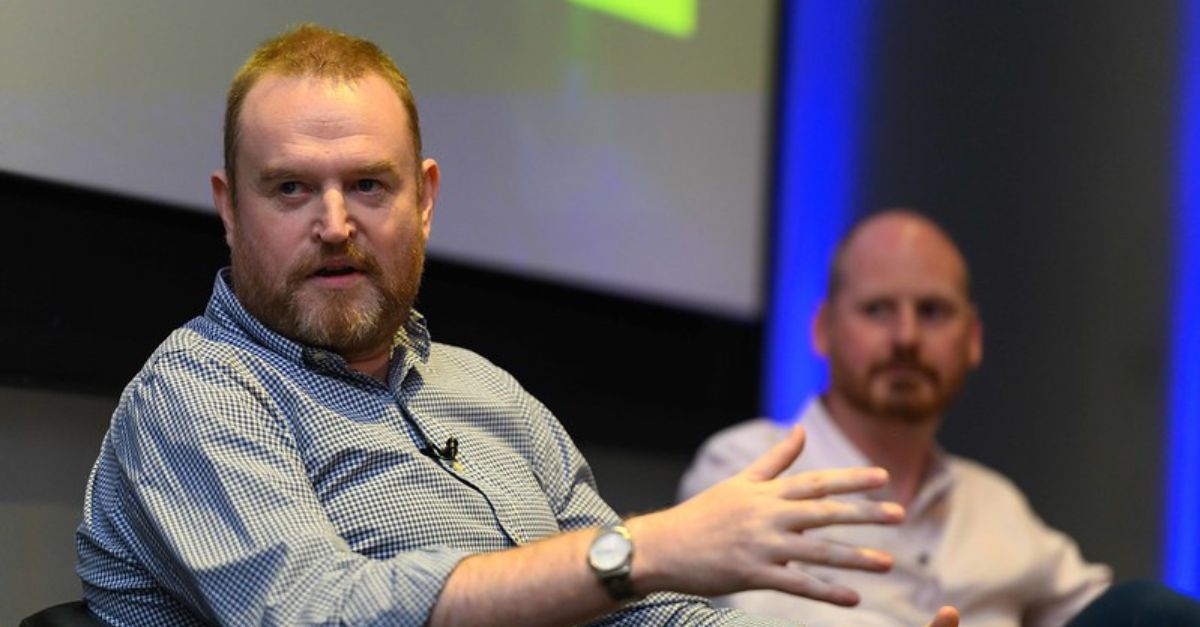In a far-reaching debate during ARC360’s Future Vehicle Technology, Chris Downing, Head of Sales and Operations, Stellantis, warned that the ZEV (zero emission vehicle) Mandate is the single biggest challenge facing manufacturers today.
The ZEV Mandate sets EV targets around the proportion of total sales each manufacturer has to meet annually. The targets increase incrementally to 80% of total sales by 2030 and 100% by 2035.
Chris, who was joined on stage by Activate Group Director of Product Pete Thompson, said, “The ZEV Mandate is the biggest threat to our industry from a manufacturer point of view that we’re facing today. The target this year is 22% and the fines are huge for failing to comply; £15,000 for each car and £18,000 per van. So you can see they are prohibitive from a volume manufacturer perspective.”
He warned that the number of BEVs (battery electric vehicles) a manufacturer sells will have a ‘direct’ impact on the number of petrol and diesel models it makes available to market, with the very real possibility of manufacturers being put under pressure to restrict ICE (internal combustion engine) models to customers, either retail or fleet.
Chris continued, “At the current YTD sales mix, we now have to sell approximately one BEV car to sell three ICE cars. We are absolutely facing the prospect at the end of the year of telling customers they may have to wait until 2025 to take delivery unless it’s a BEV..”
Production
Meanwhile, he revealed that the ZEV Mandate is having a substantial impact on production in the UK. Stellantis has invested £100m in its Ellesmere Port to support EV production, and its Luton plant will be electrified next year.
However, he suggested that if natural demand for BEV does not increase in order to meet targets, there is a fear that some difficult decisions may have to be taken in regard to UK production.
Chris said, “If manufacturers are not selling the volume and not making the profit, ultimately you have to consider shutting the doors to right-size production capacity against sales. That’s the level of seriousness that we’re facing at the moment from a from a manufacturing point of view.”
Repairers
Manufacturers are not the only ones facing the implications of EVs. Pete said that he had created a word cloud from recent articles considering EVs and the two words most prominent were ‘fear’ and ‘uncertainty’.
Activate Group handles about 80,000 repairs a year. Only six or seven per cent of them are EVs, which the group is able to take in its stride. But that doesn’t mean there is not concern among its customers.
Pete said, “The questions we’re getting from fleets are around vehicle off-road times, average repair costs, green parts availability and overall repair times. We are reaching out to get additional data because our customers, whether they be fleet or insurance, are asking.”
Possibly the most significant issue around EVs now is higher repair costs. It is well-established that EV repairs are more expensive than their ICE counterparts, and these costs were only going to increase.
Pete explained, “The biggest challenge with EVs is the lack of aftermarket and green parts at this moment in time for the majority of models. We manage that through the Activate Parts side of our business.”
The other pressing issue is a lack of skills. This impacts the entire car parc but is most acute when it comes to EV repairs.
Pete said, “There is a technician shortage in general, and specifically when it comes to repairing EVs. So when you look at repair capacity, it’s also the capability and as an industry we need to ensure we are investing in this area.”
Costs
To help manage costs, he suggested that FNOL (first notification of loss) has never been more important in ensuring the right jobs are triaged to the right repairers and the correct processes are followed ‘first time’ to prevent delays.
He said, “If you get it right first time, you got your best chance of controlling the cost of claim. With Consumer Duty, we need to ensure the customer is always at the centre of whatever technical decision we make, but we need to consider how much can we realistically automate?
“Accurate triage will help us down the line and if we can routinely deal with the easy-to-do stuff, we can apply more time to the more complex cases where ADAS functionality is involved for example.
“We know it takes longer to repair vehicles with more advanced technology, so we need to make more time in the claims journey by making data-led decisions earlier. And you can do that by automating the simple cases and allowing experienced handlers to manage the complex ones.”
Meanwhile, manufacturers also have a role to play in reducing costs, and Chris said that Stellantis is trying to soften the financial strain through a number of initiatives around green parts, battery remanufacturing, and battery repair.
He said, “We’ve invested in a platform for green parts across Europe and will start working with some UK recyclers soon. We’re now also working with European recyclers to get hold of the end-of-life vehicle and bring it back into our manufacturing chain, whether that is reusing or remanufacturing the parts and then recycling materials.”
Future
Looking ahead, they agreed that the traditional car ownership model could change with more and more customers opting to lease instead of buy.
One opportunity this can create is around manufacturing cars with components that can be updated at the end of the lease.
Chris explained, “As a manufacturer we can take that car back and upgrade it. We might put an updated battery in it or an updated infotainment system or change the front bumpers.”
The other key factor going forward would be data. Pre-collision data from connected cars can enhance claims following a collision by determining immediately if it is a fault or non-fault claim, while good use of data can also be used to support better decision-making throughout the supply chain.
Pete concluded, “One of the challenges is how we can make more data-informed decisions to help repairers in our network who are considering becoming EV capable or getting vehicle manufacturer approval.
“But data can be used to support all our customers. If there is uncertainty and fear, we have to remove that and sharing data, and being transparent is one of the key parts of that.”
ARC360’s Future Vehicle Technology was held at the Manufacturing Technology Centre (MTC) in Coventry, supported by Corporate Partners: BASF, CAPS, Copart, Entegral, Enterprise, Mirka, Nationwide Vehicle Assistance, S&G Response, Solera Audatex; along with Partners: e2e, Gemini ARC, Repairify and Prasco. The event was sponsored by Activate Group and Thatcham Research along with vehicle manufacturer – Stellantis.
















